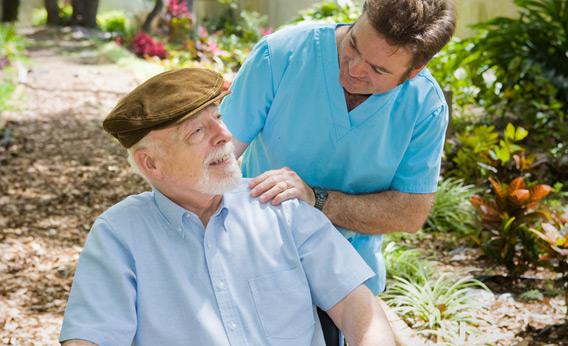From the Department of Things We Should Be Over Already:
In this month’s issue of the American Journal of Men’s Health, researchers from East Tennessee State University discover that male nurses are, contrary to popular belief, capable of acting like men. In a nationwide survey of nursing students, Kenny Thompson, RN, and his colleagues asked respondents to characterize their gender expression via a series of questions addressing various stereotypical measures like gentleness and aggressiveness; they found that, on a scale of 1-to-7, male nurses score a hearty 5.3, compared to their non-nurse bros’ sissy 4.9. More shocking, however, is the fact that these bedside warriors are also able to be feminine, scoring 5.50 on the same scale. The conclusion?
The findings boil down to one thing: Nursing students in the present study are more androgynous than general students studied previously.
That’s right: Male nurses exhibit characteristics that might be called feminine or masculine in basically equal amounts. This shouldn’t come as such a surprise. In 2011, we should be well past the hand-wringing associated with whether a given profession is appropriate for a given sex, or, indeed, whether working a particular job makes us butch or femme. Well-adjusted individuals (i.e. people who aren’t hung up on restrictive and outmoded definitions) can and do deploy all kinds of “gendered” behaviors at various points in time. In fact, I would argue that to be successful and socially intelligent people, we have to be willing and able to play what amounts to a drag game every day: different situations, whether in the ER or elsewhere, require us to wear different wigs. Or use different toolboxes, if that makes you feel dudelier.
I’m mixing my metaphors here, but then, talking about gendered behavior this way is also confusing. Is it feminine when a male nurse comforts a patient or someone who has just lost a loved one? Some might call that being strong for someone else, which is supposedly masculine. And is it manly not to flinch when dealing with wounds or bodily fluids? Many mothers of accident-prone children would probably disagree with that. The point is, shouldn’t we just drop the pretense that masculine and feminine behaviors are distinct at all? Men can be nurses and women can be construction workers because we’re all capable of transcending the limited sitcom visions of what gender expression can mean if we choose to. In that sense, we’re all androgynous, and the sooner we quit being surprised by that, the sooner grants for studies like these can be better spent.
